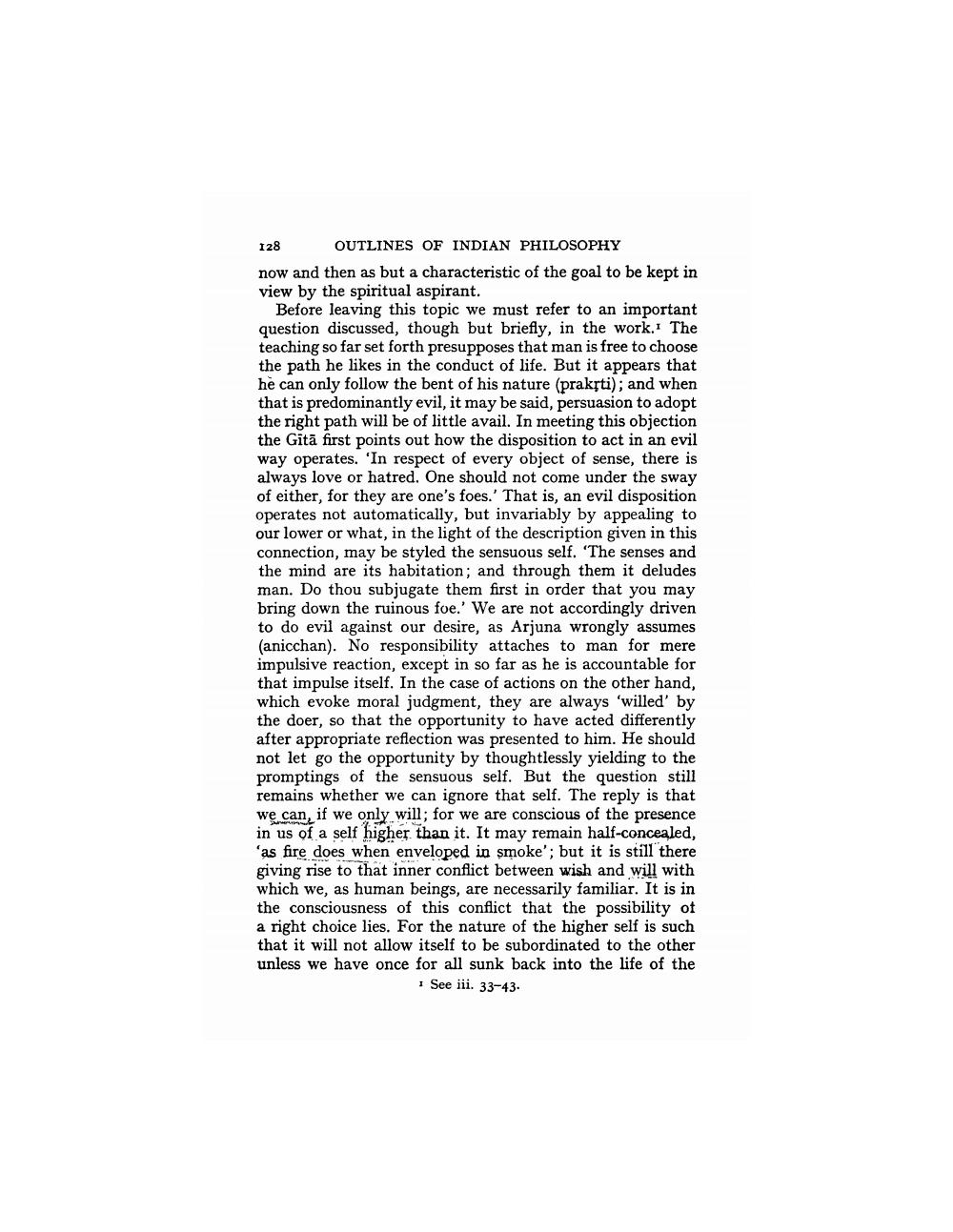________________
128 OUTLINES OF INDIAN PHILOSOPHY now and then as but a characteristic of the goal to be kept in view by the spiritual aspirant.
Before leaving this topic we must refer to an important question discussed, though but briefly, in the work. The teaching so far set forth presupposes that man is free to choose the path he likes in the conduct of life. But it appears that he can only follow the bent of his nature (prakrti); and when that is predominantly evil, it may be said, persuasion to adopt the right path will be of little avail. In meeting this objection the Gītā first points out how the disposition to act in an evil way operates. 'In respect of every object of sense, there is always love or hatred. One should not come under the sway of either, for they are one's foes.' That is, an evil disposition operates not automatically, but invariably by appealing to our lower or what, in the light of the description given in this connection, may be styled the sensuous self. 'The senses and the mind are its habitation, and through them it deludes man. Do thou subjugate them first in order that you may bring down the ruinous foe.' We are not accordingly driven to do evil against our desire, as Arjuna wrongly assumes (anicchan). No responsibility attaches to man for mere impulsive reaction, except in so far as he is accountable for that impulse itself. In the case of actions on the other hand, which evoke moral judgment, they are always 'willed' by the doer, so that the opportunity to have acted differently after appropriate reflection was presented to him. He should not let go the opportunity by thoughtlessly yielding to the promptings of the sensuous self. But the question still remains whether we can ignore that self. The reply is that we can, if we only will; for we are conscious of the presence in us of a self higher than it. It may remain half-concealed, 'as fire does when enveloped in smoke'; but it is still there giving rise to that inner conflict between wish and will with which we, as human beings, are necessarily familiar. It is in the consciousness of this conflict that the possibility of a right choice lies. For the nature of the higher self is such that it will not allow itself to be subordinated to the other unless we have once for all sunk back into the life of the
See iii. 33-43.




